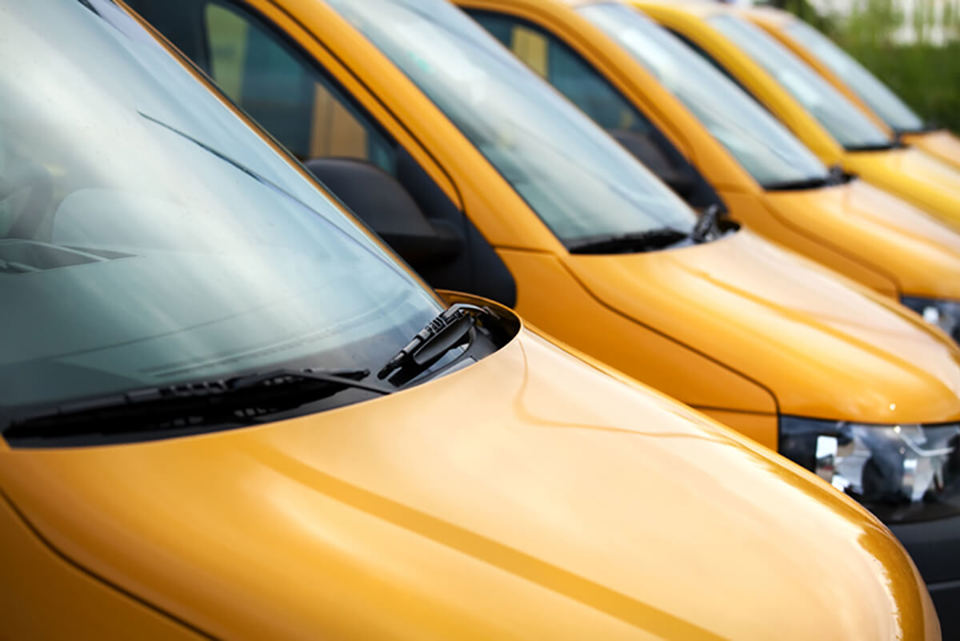Industry associations, including the Society of Motor Manufacturers and Traders (SMMT) and the British Vehicle Rental and Leasing Association (BVRLA), have successfully lobbied for minor van modifications such as ply-lining and racking to be exempted from the type approval regulations due to come into force on April 29.
The European Community Whole Vehicle Type Approval (ECWVTA) regulations will apply to light commercial vehicles up to 3.5 tonnes for the first time. Initially the UK Vehicle Certification Agency (VCA) intended that all modifications, no matter how minor, would require an individual vehicle approval (IVA) certificate.
However, it has now agreed that minor alternations will no longer require the vehicle being re-presented for type approval. Instead, the new ‘Van Enhancements Scheme’ means they can be treated as part of the vehicle payload.
The amendment states that: “Modifications to the vehicle which are of a semi-permanent or temporary nature (i.e. not welded to the vehicle structure) can generally be treated as part of the vehicle payload.
In addition, certain temporary modifications on the exterior of the vehicles such as access steps, roof racks/bars, are to be treated in the same way. Hence it is not necessary to obtain any specific approval to cover these kinds of modifications.”
Permitted modifications
All modifications need to be carried out prior to registration. However, they will only be permitted under the enhancements scheme if:
• The modifications are on a vehicle that, in its original state, had full ECWVTA from the manufacturer
• The converter used has shown the VCA that they have the necessary processes and systems to give conformity of production
• The changes are fully compliant with the requirements for ECWVTA
• The VCA has witnessed tests if so required to support any changes
• Suitable documentation is produced to the VCA to support these changes
The amendments will reduce some of the potential cost for fleet operators but there are still considerable grey areas, according to E.On commercial vehicle manager Lorna McAtear.
She pointed to items such as tracking systems, roof vents, reversing sensors and ancillary alarms, which are classed by VCA as “maybes” and may, therefore, remain within the scope of the ECWTVA.
“It has not taken out as much as we’d hoped,” McAtear said. “But the good news is that it has defined a van as a van – if I change from one badge to another with the same equipment we only need one type approval. Previously we needed a whole type for every model.”
Uncertainty over process
McAtear is considering whether to continue fitting such items before registration or whether to register the van and then retro-fit.
However, this might increase cost as E.On will already be paying for the vehicle while the conversions take place.
“Until we go through the process, we will still be unsure how it will affect us,” she said. “One unknown is if it takes a converter a week to fill in the paperwork, will they swallow this cost or pass it on? We expect they will pass it on to us.”
McAtear’s calculations suggest that the cost of ECWTVA to E.On could be as much as £100,000 for putting the same 2,000-plus vans on to the road. In addition will be a £1.10 fee levied by the VCA for each vehicle that goes through the enhancements scheme.
She added: “I’m also concerned about the amount of time it will take for one-off type vehicles to be tested under the IVA. Cost and time are still big concerns.”
More complex modifications, such as roof beacons and tail-lifts, will need to go through the simplified IVA route, whereby the body-builder who carries out the modification has their fitting process approved.
“Fleet owners will need to communicate with their vehicle converters to make sure that they are VCA-approved, in order to avoid any delays or bottlenecks,” said John Lewis, chief executive of the BVRLA.
Van Enhancement Scheme ‘could increase costs’
Leasing company GE Capital believes the Van Enhancement Scheme could “increase costs incurred by the converter for administrating compliance to the scheme”.
These costs could be included into the conversion pricing from the converter.
It also believes there will be a slight increase in delivery times for those vehicles as the necessary administration paperwork is created and processed.
However, as the numbers of vehicles passing through this scheme grows, the process flows are anticipated to speed up, and any increases in lead-times should be minimal.
Responsibility for obtaining the EC Whole Vehicle Type Approval lies with the final converter of the vehicle, and any documentation relating to this should be supplied with the vehicle. Fleets need to keep hold of the paperwork as it will be required when they disposal of the vehicle at end of contract or operating cycle.
More detail on the Van Enhancements Scheme will be published in the March issue of Fleet Van, out March 21.
To read the ECWVTA Enhancements Scheme in full, click here.




















Login to comment
Comments
No comments have been made yet.